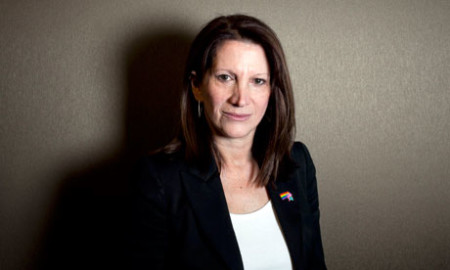The government has today (Friday 5 December) launched a consultation asking for views on how best to introduce mandatory reporting of female genital mutilation (FGM).

In a package of announcements to mark the sixteen UN International Days for the Elimination of Violence Against Women, Crime Prevention Minister Lynne Featherstone also announced the recipients of government funding to tackle FGM and details of a specialised cross-government unit that will spearhead efforts to end the practice.
FGM has been a criminal offence in the UK since 1985, but only two prosecutions have been brought. Victims and witnesses often come under pressure from their family or community not to speak out.
The government believes mandatory reporting should help increase the number of reports of FGM to the police from professionals. It is hoped this will lead to further prosecutions that will deter perpetrators and protect victims.
The consultation, which will last for five weeks, will seek views on how to introduce mandatory reporting and which agencies it will cover.
It will also look at what sanctions should be used if professionals fail to report cases of FGM.
“The government is clear that FGM is a crime and it is child abuse. We will not tolerate a practice that can cause extreme and lifelong physical and psychological suffering to women and girls,” Crime Prevention Minister Lynne Featherstone said.
“However, FGM is a highly complex and sensitive issue and we must tread carefully to ensure that all our actions put survivors and potential victims first.
“This consultation will allow survivors of FGM, health care professionals and charities working in this field to offer their views.
“Following the success of this summer’s Girl Summit the government is determined to keep up the momentum and do everything we can to put an end to FGM within a generation.”
The government has also today set out details of its new FGM Unit, which will:
– Work with the charity Forward to deliver training workshops for Local Safeguarding Children’s Boards and a series of FGM roadshows, focusing on areas of the UK with high estimated FGM prevalence (including London, Birmingham and Manchester);
– Work with the National Crime Agency, Border Force, police forces and College of Policing to improve the identification and prosecution of offenders; and
– Act as a hub to identify and share best practice.
Further to this, the successful applicants for £270k of FGM funding have been announced. The money will support 17 frontline projects across England to help stop FGM and ‘honour’ based violence.
“I first became aware of Female Genital Mutilation when a teacher came to one of my MP surgeries and I was introduced to a group of girls who had decided to campaign against FGM,” Communities Minister Stephen Williams stated.
“I was horrified at what I heard about this deeply embedded cultural practice. This practice has no medical benefits; indeed it results in great pain and distress as well as causing medical complications during child birth.”
“That’s why I am proud that this Government is making good on its pledge at the Girl Summit to invest in these valuable projects, which will change hearts and minds in local communities, train frontline workers and help bring an end to this practice.”
Last week Lynne Featherstone, who is also Ministerial Champion for ending violence against women and girls, visited the Katherine Low Settlement charity. The Katherine Low Settlement has received £10k funding from the Home Office to train twelve local residents as ‘community champions’ who can raise awareness of FGM amongst schools, faith groups and other parts of the community.
Other government work to tackle FGM includes new legislation to grant victims of FGM lifelong anonymity from the time an allegation is made; the introduction of new civil orders designed to protect girls identified as being at risk of FGM; and new legislation that will mean parents can be prosecuted if they fail to prevent their daughter being cut.
Source: Home Office










